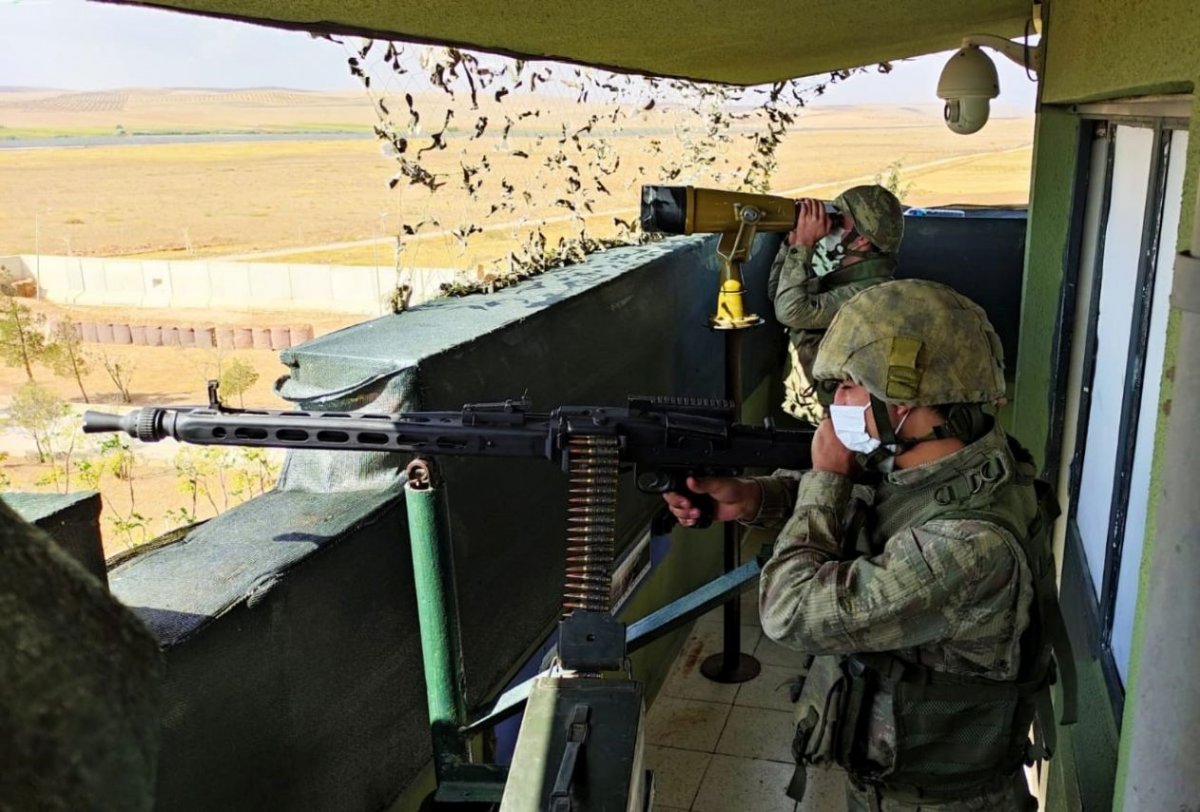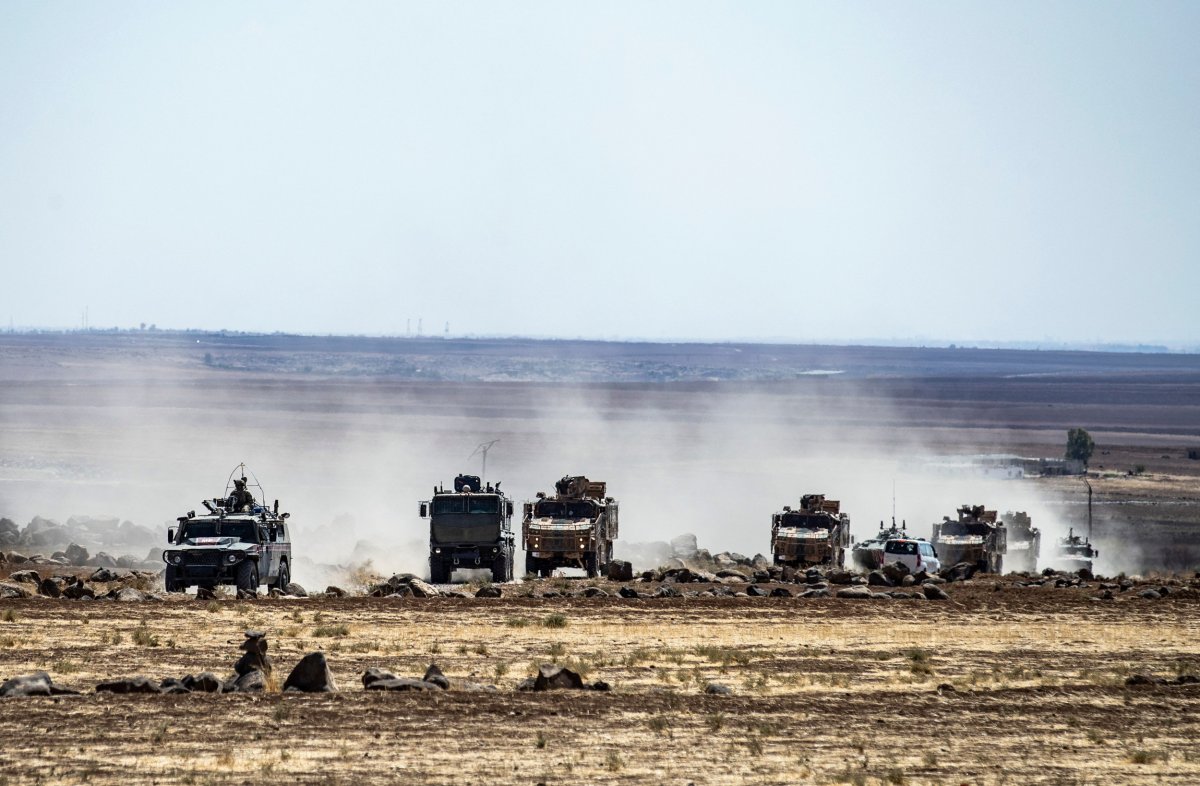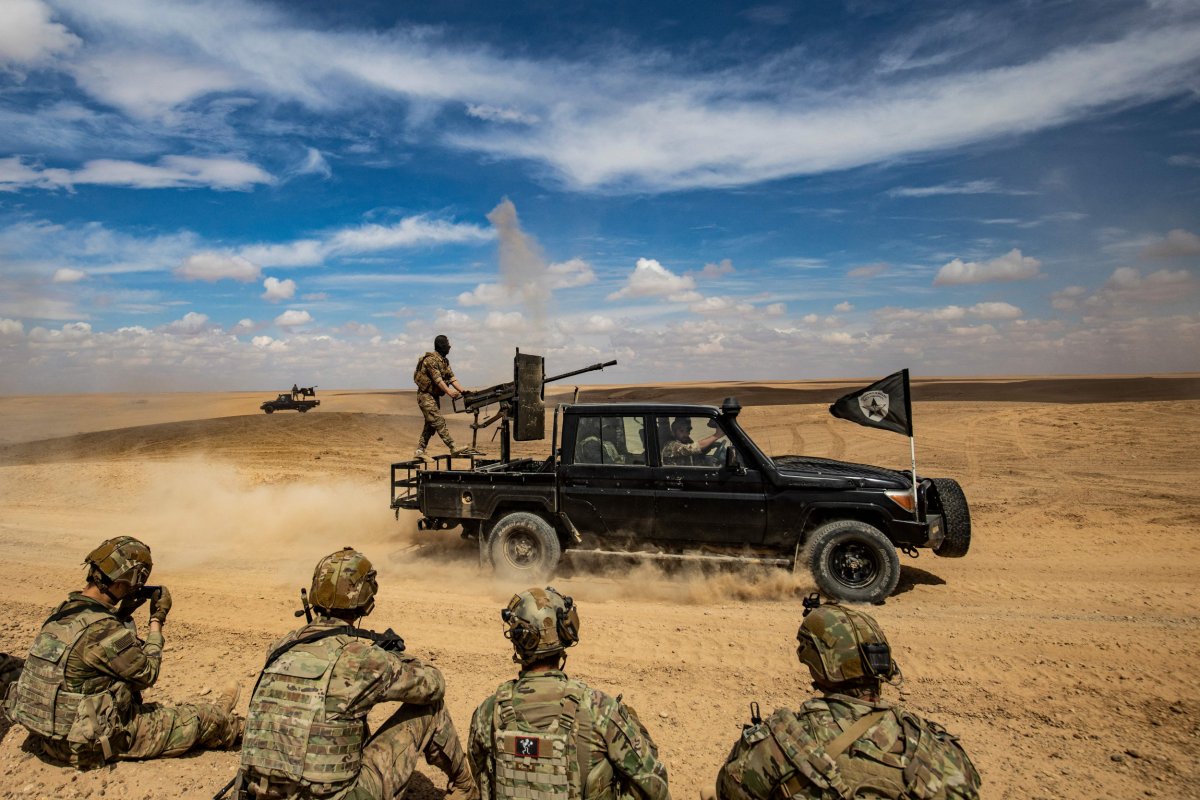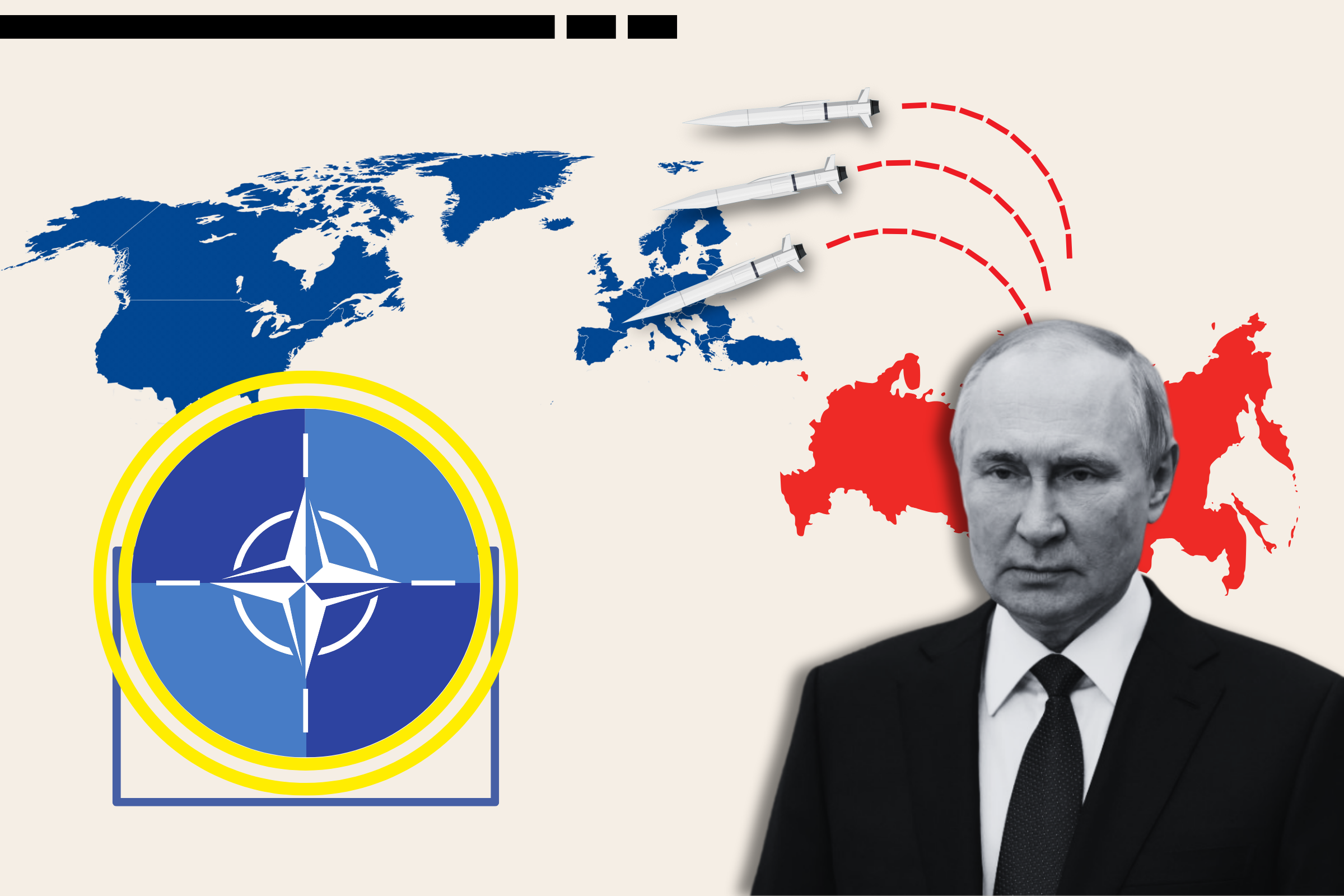Turkey appears to be leveraging its position as a deciding factor in the U.S.-led NATO military alliance's attempts to counter Russia's war in Ukraine by planning a new operation in northern Syria, where factions backed by Washington and Moscow both oppose Ankara's aims.
Turkish President Recep Tayyip Erdogan has declared his opposition to the bids of Finland and Sweden to join NATO, arguing that the two countries offer safe havens for supporters of the Kurdistan Workers' Party (PKK), a separatist group that has waged an insurgency for Kurdish autonomy for more than three decades. The Turkish leader's approval would be necessary for the Western bloc to greenlight its latest expansion.
As Erdogan held steadfast in his view, Turkish officials have begun talking openly of plans to launch a new incursion across the Syrian border against forces they associate with the PKK. Among these factions are the Kurdish-led Syrian Democratic Forces, a Pentagon-backed group that serves as a vanguard in the U.S.-led coalition's ongoing fight against the Islamic State militant group (ISIS).
Former Turkish diplomat and current Carnegie Europe visiting scholar Sinan Ülgen told Newsweek that with the U.S. depending on Turkey to hold the NATO line against Russia in Ukraine, its opposition to the planned incursion is likely to be muted.
"The calculus perhaps on the side of Ankara is that the West needs Turkey on board with NATO enlargement," Ülgen said, "and, therefore, at a critical time like this, there will be less criticism of Turkey's cross-border operation."
Still, he argued that the situation "has put Turkey and the U.S. on a collision course."
Further tying the timing of Turkey's planned incursion into northern Syria to the war in Ukraine, Ülgen pointed to the presence of Russian troops also operating within a "cordon sanitaire," which was established as a security zone along the Syrian-Turkish border in 2019 after Ankara struck back-to-back deals with Washington and Moscow to dismantle positions of the Syrian Democratic Forces within a "safe zone."
Russia, however, supports the Syrian government, which views Turkey, like the U.S., as an illegitimate occupying force. But as Turkey continues a years-long balancing act in its relations with the U.S. and Russia, Ülgen argued that Erdogan also saw an opportunity to bypass Moscow's protests over Ankara's objectives in Syria.
"There is a calculation in Ankara that Russia will not anymore oppose such an intervention," Ülgen said, "and will not want to oppose such an intervention because Russia now is also more in need of retaining Turkey as a diplomatic partner on Ukraine."

As Erdogan makes the case for what would be Turkey's fourth major intervention in Syria, following Operation Euphrates Shield in 2016, Operation Olive Branch in 2018 and Operation Peace Spring in 2019, he and his government have held high-level consultations with both Washington and Moscow.
In a call with Turkish presidential spokesperson Ibrahim Kalin, White House national security council advisor Jake Sullivan "reiterated the importance of refraining from escalation in Syria to preserve existing ceasefire lines and avoid any further destabilization," and "urged continued dialogue and diplomacy to resolve any disagreements in the eastern Mediterranean region," according to a White House readout.
Sullivan also "expressed support for Turkey's continued direct talks with Sweden and Finland to resolve concerns over their applications for NATO membership, which the U.S. strongly supports."
Kalin, however, "pointed out that the countries that seek to become a member of NATO should adopt the Alliance's values and principles on security and combatting terrorism," and "stressed in this sense that Sweden and Finland have to take concrete steps regarding the terrorist organizations that threaten Türkiye's national security," according to the Turkish presidency's readout.
"It was stressed that the PKK/PYD/YPG terrorist organization continued to pose a threat to Türkiye's national security and Syria's territorial integrity," the readout added. "It was underscored that Türkiye would determinedly maintain its fight against all the terrorist organizations."
The U.S. also considers the PKK a terrorist organization, and officially opposes its presence, even if members of the Syrian Democratic Forces and its affiliated People's Protection Units (YPG) and the leading Syrian Kurdish Democratic Union Party (PYD) at times openly flaunt PKK imagery, including pictures of its leader, Abdullah Öcalan, who has been imprisoned in Turkey since 1999.
Reached for comment by Newsweek, the State Department referred to spokesperson Ned Price's remarks Tuesday, in which he said President Joe Biden's administration would continue "to support the maintenance of current ceasefire lines" and "condemn any escalation that has the potential to jeopardize that."
"We believe it is crucial for all sides to maintain and respect ceasefire zones, principally to enhance stability in Syria and to work towards a political solution to the conflict," Price added. "We believe that any effort to do otherwise could be counterproductive to our goals to bring about an end to the broader conflict in Syria, but also the tremendous progress that we've made together, including with our Kurdish partners, in the effort against ISIS that has achieved such important steps in recent years."
And while Price asserted that U.S. officials "recognize Turkey's legitimate security concerns on its border," he emphasized that the administration was "concerned that any new offensive would further undermine regional stability and would put at risk those hard-won gains in the campaign against ISIS."
A day before Sullivan and Kalin's call, Erdogan spoke directly via telephone with Russian President Vladimir Putin. The Kremlin's readout made no mention of Syria, only that "the presidents also reviewed a number of regional issues," and instead focused on the situation in Europe.
"Discussing the developments in Ukraine, they emphasized the need to ensure safe navigation in the Black Sea and the Sea of Azov and to remove the threat of mines in these waters," the Russian account stated. "Vladimir Putin noted Russia's willingness to facilitate unimpeded cargo shipping in coordination with its Turkish partners including grain shipments from Ukrainian ports."
On Ukraine, Erdogan presented himself as a mediator, stating "Türkiye's readiness, if agreed upon in principle by both parties, to meet with Russia, Ukraine and the United Nations in Istanbul, and to assume a role in a possible observation mechanism," according to the Turkish account.
Turkey has joined NATO and a number of partnered countries in condemning Russia's attack on Ukraine, and has provided Kyiv with advanced Bayraktar TB2 drones that have inflicted significant casualties among Russian troops. These unmanned aerial systems have been deployed in past operations with similar lethality against Russian allies in the Nagorno-Karabakh conflict between Armenia and Azerbaijan, as well as in Libya and Syria.
In addition to blocking Finland and Sweden's NATO aspirations, Turkey has also shown it can cause frustrations for the bloc in other ways. It holds the keys to the straits that lie between the Mediterranean and Black Seas as part of the 1936 Montreux Convention, and Turkish Foreign Minister Mevlut Cavusoglu told the Anadolu Agency that Ankara has, "in accordance with the convention, cancelled or postponed planned NATO drills."
Speaking to Putin on Monday, Erdogan also made clear his intentions in Syria.
"Drawing attention to the PKK/YPG terrorist organization's continued attacks in Syria against Türkiye and Syrian civilians," the readout said, "President Erdoğan said that the terror-free zone with a depth of 30 kilometers from the Türkiye border, as had been stated in the memorandum of understanding of October 2019, was not established, and that it was imperative to make these areas secure."
Newsweek has reached out to the Turkish embassy in Washington for comment.

The Syrian Democratic Forces and their political wing, the Syrian Democratic Council, have raised protests toward the planned Turkish attack.
A statement published last week by the group alleged "a Turkish plot to establish a black belt of terrorist organizations" involving front-line deployments of the powerful Hayat Tahrir al-Sham, a former Al-Qaeda affiliate, and Hurras al-Din, currently aligned with Al-Qaeda, in the leadup to Ankara's operation.
These groups, along with Turkey-backed opposition factions active in the rebel-held province of Idlib and across the border security corridor, have been accused of human rights abuses, especially against Kurds and other ethnic and religious minorities.
Syrian Democratic Council representative to the U.S. Sinam Mohamad told Newsweek that, "Turkish threats against our semi-autonomous region are nothing new."
"They are serious and we take them that way," Mohamad said. "However, it is not easy for Turkey to obtain the approval of countries directly engaged in Syria to carry out unprovoked military operations against us. I believe the United States has made it clear to Turkey that a new Turkish military campaign in northeast Syria will have repercussions. Attacks against the SDF will only serve ISIS' interest and run counter to the interests of the anti-ISIS coalition including the U.S."
And when it comes to the U.S. role, she said the Syrian Democratic Council is "in dialogue" with the Biden administration regarding the prospect of yet another Turkish assault. She said she believed that "we are in full agreement with it that a new Turkish campaign will only de-stabilize the region," serving not only ISIS' interests but also those of other "Islamic radical groups operating in Syria," while creating "a new humanitarian crisis including by displacing hundreds of thousands of Syrians as previous Turkish military operations did."
However, when asked if she was concerned that the U.S. focus was elsewhere, given the events in Europe, she said she still held hope that Washington would not abandon its partners in Syria.
"The war in Ukraine has impacted us all in some way," Mohamad said, "but I don't believe that the administration has taken its eye off of Syria, and it remains fully committed to ensuring our region's security and stability."
Also warning against a new Turkish incursion was Syria's central government, led by President Bashar al-Assad, who with help from Russia and Iran remains firmly in power more than 11 years after crackdowns on protests devolved into an uprising backed by the U.S. and its partners, including Turkey.
In a letter dated Monday to the U.N. Security Council and shared with Newsweek, Syria's permanent mission to the U.N. stated that Damascus "rejects the military hostilities launched by the occupying Turkish forces for several days" across towns and villages in northeastern and northwestern Syria, which have "led to the death and injury of many civilians, caused massive damage to public and private properties and infrastructure in those areas, and displaced dozens of Syrian families from their homes and villages there."
"The Turkish regime attempts to establish the so-called 'safe zone' on Syrian territory is a shameful act of aggression and part of the policy of ethnic and demographic cleansing practiced by the government of Erdogan in the occupied Syrian territories," the letter said, "and they are war crimes and crimes against humanity that are rejected by the United Nations Charter, international law and international humanitarian law."
Though Damascus and the Syrian Democratic Forces' semi-autonomous administration in northern and eastern Syria are at odds about the country's future, they are both opposed to Turkey and the insurgent militias aligned with it. The two sides have even cooperated at times to this end, even if repeated attempts at a broader reconciliation remain stalled.
But while the Syrian Democratic Forces view the U.S. as a potential barrier to Turkey's designs in northern Syria, the Syrian government sees it as an enabler.
"Syria affirms that its sovereignty, independence, unity and territorial integrity will not be the subject of blackmail or bargaining by the Turkish extremist regime in collusion with its ally in Washington and with some Western countries," the letter said, "that seek cheap political gain at the expense of the Syrian people and their territorial integrity and in contradiction to the international unanimity on the need to preserve and respect the sovereignty, independence, unity and territorial integrity of the Syrian Arab Republic."

It remains unclear whether the Biden administration would increase its opposition to Erdogan's plans in Syria from words to action.
Myles B. Caggins III, a Council on Foreign Relations military fellow who previously served as senior spokesperson for the U.S.-led anti-ISIS coalition during Turkey's last incursion into Syria, told Newsweek that any U.S. military resistance to another such incursion is unlikely.
"It's beyond my imagination that the United States would physically defend our partners on the ground against aggression from a NATO ally," Caggins said. "I think that's why we've seen high level talks with the U.S. national security adviser and his counterpart, and I think it's also why President Biden has strongly supported the applications of Finland and Sweden into NATO, despite opposition from Turkey."
And while he said any U.S. use of force against a NATO ally would be virtually "unprecedented," he also pointed out that "Turkey has used physical aggression against Greece," a longstanding rival yet fellow NATO member with whom tensions remain high.
"So if anybody doesn't play by NATO rules, it seems to be them," Caggins said of Turkish leadership.
But Ankara has repeatedly voiced its displeasure with what it perceives as NATO indifference to its security concerns in northern Syria, as well as to the vast migration crisis created by the conflict there that has seen Turkey take in some 3.6 million Syrian refugees, more than all other nations combined. Frustrated by NATO inaction over that crisis, Erdogan five years ago openly discussed invoking the alliance's Article 5, NATO's collective defense clause, which has only been used once in history, in response to the 9/11 attacks against the U.S. two decades ago.
Frustrated over U.S. support of Kurdish forces in Syria, Ankara's relations with Washington soured even further in the final weeks of the Trump administration, which imposed sanctions on Turkey for acquiring Russia's S-400 surface-to-air missile system. Biden has not yet made any movement to lift these restrictions or move forward with an indefinitely suspended F-35 fighter jet deal, despite Erdogan's repeated requests.
The Biden administration has, however, reportedly called on Congress to back a proposal to provide Turkey with upgraded F-16s, older versions of which Turkish forces have flown in operations in Syria and Iraq, where Kurdish forces have also been under bombardment. These aircraft may offer Turkey an enhanced capability to target the Syrian Democratic Forces as they continue to clash with ISIS and hold up to 10,000 detainees of the jihadi group.
"The world said we need to stop ISIS, and the people who stopped ISIS in Kobani in 2015 were the Syrian Democratic Forces," Caggins said. "These are the same forces who were the champions against ISIS, and who our NATO ally is ready to attack."
But he noted that the situation was complicated by Ankara's ongoing coordination with Moscow, which he said, beyond seeking to retain its presence in a unified Syria, "has a longstanding goal of fracturing NATO and causing multiple dilemmas for the United States."
Caggins stated that the overarching goal of the U.S. remains clear.
"The priority of the United States is going to be to keep NATO intact," he said.
Uncommon Knowledge
Newsweek is committed to challenging conventional wisdom and finding connections in the search for common ground.
Newsweek is committed to challenging conventional wisdom and finding connections in the search for common ground.
About the writer
Based in his hometown of Staten Island, New York City, Tom O'Connor is an award-winning Senior Writer of Foreign Policy ... Read more
To read how Newsweek uses AI as a newsroom tool, Click here.








